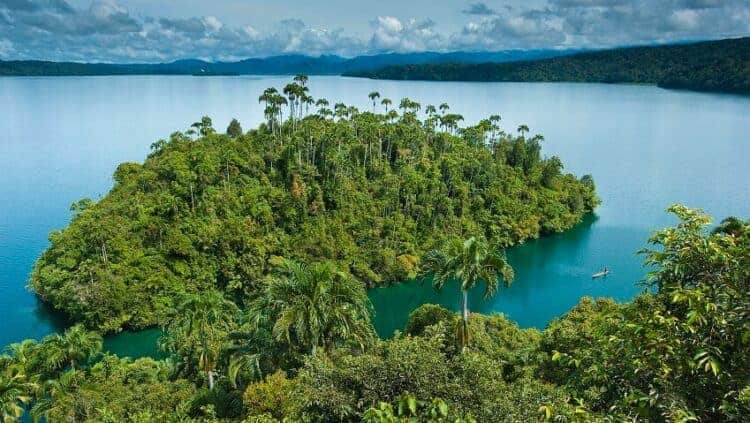via Science, 14 April 2021: This paper was featured last week, but some new criticisms levelled at it include the lack of deep community involvement with indigenous peoples. Still it is better than alleged ethics violations.
It was one of the boldest journeys in human history: People ventured into the open Pacific Ocean in double-hulled canoes, crossing thousands of kilometers to find and settle far-flung lands. Now, a study of the genomes of hundreds of modern Indigenous residents of Oceania provides new insights into the routes those ancient voyagers took—and who they encountered along the way. The findings suggest more mingling among ancient people in the region than many scientists had thought, including four mixing events with the extinct Denisovan lineage. Despite those intriguing results, critics say the authors failed to meaningfully involve members of the Indigenous communities who provided DNA for the study.
“It’s a really exciting paper,” says Lisa Matisoo-Smith, an anthropologist at the University of Otago, Dunedin. But she says it is somewhat troubling that the paper, which has no Indigenous authors, does not make clear the extent to which Indigenous communities were engaged. Meaningfully involving such communities “makes our research and our interpretations richer,” she says.
Based on archaeological and linguistic data, anthropologists long ago developed a basic model of how humans came to call Oceania and the Pacific Islands home: Hunter-gatherers crossed into Near Oceania—a region including New Guinea, the Bismarck Archipelago, and the Solomon Islands—some 45,000 years ago. About 5000 years ago, farmers from what is now Taiwan headed south into the Philippines. According to this “out of Taiwan” model, they moved past Near Oceania and into Remote Oceania—which includes Micronesia, Vanuatu, and Fiji—bypassing the people already living in the region. A 2016 study of ancient genomes found that these migrants didn’t mix with the populations already living on the islands, suggesting they moved quickly. These voyagers then began to settle the Polynesian islands farther east about 1000 years ago
…
As for concerns about lack of Indigenous participation, Quintana-Murci points out that the author list does contain local Taiwanese and Filipino researchers who work closely with Indigenous communities. But norms around sovereignty over genetic data are changing fast. Last week, Princeton University anthropologist Agustín Fuentes and others urged to scientists to push journals and funding agencies to require meaningful community involvement, rather than simple clearance by an ethical review board, at a virtual session of the annual meeting of the American Association of Physical Anthropologists.
























